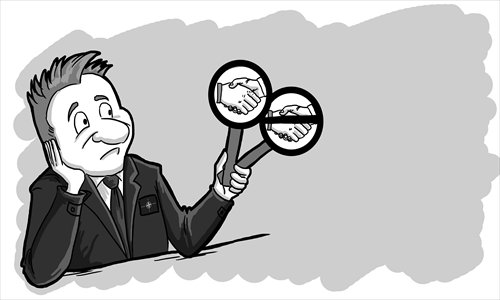European powers no longer have role across Pacific

Over the past decade, NATO has increasingly stepped outside of its traditional regional boundaries and begun operating in far flung corners of the world.
Most notably, the group has played a large role in the war in Afghanistan, and more recently in the toppling of Libyan strongman Muammar Gaddafi.
The relative success of the latter mission, combined with the general sense that NATO has offered long-term stability in Europe, has led to some calls for NATO to operate in hot spots and regional trouble zones, and generally to increase its global presence.
However, while NATO may have an extra-regional role to play in certain cases such as in fighting piracy off Somalia, it would be a serious mistake for NATO to attempt to intervene in East Asian politics.
As operations in Libya demonstrated, while the major European powers continue to have potent armed forces, they have difficulty projecting power for any extended time outside the region.
To maintain a presence in Afghanistan, even France and the UK depend heavily on logistical support from the US. The French and British navies have global capabilities, but they rarely deploy far afield in serious force and currently operate only a single large aircraft carrier between them.
The Spanish and Italian navies, while largely by international standards, have little modern history of global operations. The German navy has not had a significant Asian presence since World War I. It is hard to see how NATO could offer more than a token military presence in the Far East.
Basing and logistical support for any deployed European military forces would depend on the goodwill of the US and regional partners. But there's little indication that anyone wants the Europeans to return to the Pacific.
While NATO has provided operations in Afghanistan with a degree of international legitimacy, and while the US has benefited materially from NATO's contribution, managing the various members of the alliance has often proven difficult.
The US navy has little interest in coordinating the activities of Danish frigates, Polish submarines, and Greek patrol vessels in the South China Sea, or in devoting scarce resources to ensuring that European forces remain capable and secure.
Inviting NATO to contribute would also mean inviting the opinions of NATO countries on major security decisions, something that policymakers in Washington do not relish.
Moreover, the shadow of colonialism stands in NATO's path. For NATO to have an important positive effect, it would need to earn the respect of regional powers. France, the UK, Portugal, and the Netherlands all have checkered imperial histories in East and Southeast Asia.
While nations in NATO's neighborhood may grudgingly accept the power and influence of the alliance of former colonial masters, there is little reason for countries such as Vietnam, Indonesia, and Malaysia to welcome a larger European presence.
The most important European states by and large have cordial relations with the nations of East Asia, but do not offer the degree of moral authority necessary to act as neutral arbiters in regional disputes.
Warnings about the obsolescence of NATO are probably premature. The alliance can continue to coordinate the security affairs of Europe, including managing conflicts along Europe's borders. However, NATO has little interest in intervening in East Asia affairs, and not much capability to do so even if it wanted.
The day when French or British warships could promise to bring order to Asia is long past. The Europeans don't want the job, and few in Asia want them to take it.
The nations of the Pacific, including NATO members such as Canada and the US, will determine the structure of Pacific politics for the 21st century.
The author is assistant professor of national security at Patterson School of Diplomacy and International Commerce, University of Kentucky. opinion@globaltimes.com.cn
US pivot doesn't affect NATO's Asian partnerships